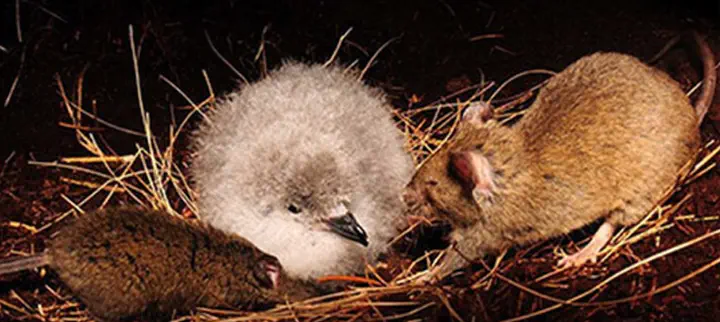The impacts of introduced House Mice on the breeding success of nesting seabirds on Gough Island

Abstract
Invasive species are the main threat to island biodiversity; seabirds are particularly vulnerable and are one of the most threatened groups of birds. Gough Island, a UNESCO World Heritage Site in the South Atlantic Ocean, is an Important Bird and Biodiversity Area, and one of the most important seabird colonies globally. Invasive House Mice Mus musculus depredate eggs and chicks of most seabird species on the island, but the extent of their impact has not been quantified. We used field data and bootstrapped normal distributions to estimate breeding success and the number of surviving chicks for 10 seabird species on Gough Island, and compared estimates with those of analogous species from predator-free islands. We examined the effects of season and nest-site location on the breeding success of populations on Gough Island, predicting that the breeding success of Gough birds would be lower than that of analogues, particularly among small burrow-nesting species. We also predicted that winter-breeding species would exhibit lower breeding success than summer-breeding species, because mice have fewer alternative food sources in winter; and below-ground nesters would have lower breeding success than surface nesters, as below-ground species are smaller so their chicks are easier prey for mice. We did indeed find that seabirds on Gough Island had low breeding success compared with analogues, losing an estimated 1,739,000 (1,467,000 - 2,116,000) eggs/chicks annually. Seven of the 10 focal species on Gough Island had particularly high chick mortality and may have been subject to intense mouse predation. Below-ground and winter breeders had lower breeding success than surface- and summer-breeders. MacGillivray’s Prion Pachyptila macgillivrayi, Atlantic Petrel Pterodroma incerta and Tristan Albatross Diomedea dabbenena are endemic or near-endemic to Gough Island and are likely to be driven to extinction if invasive mice are not removed.